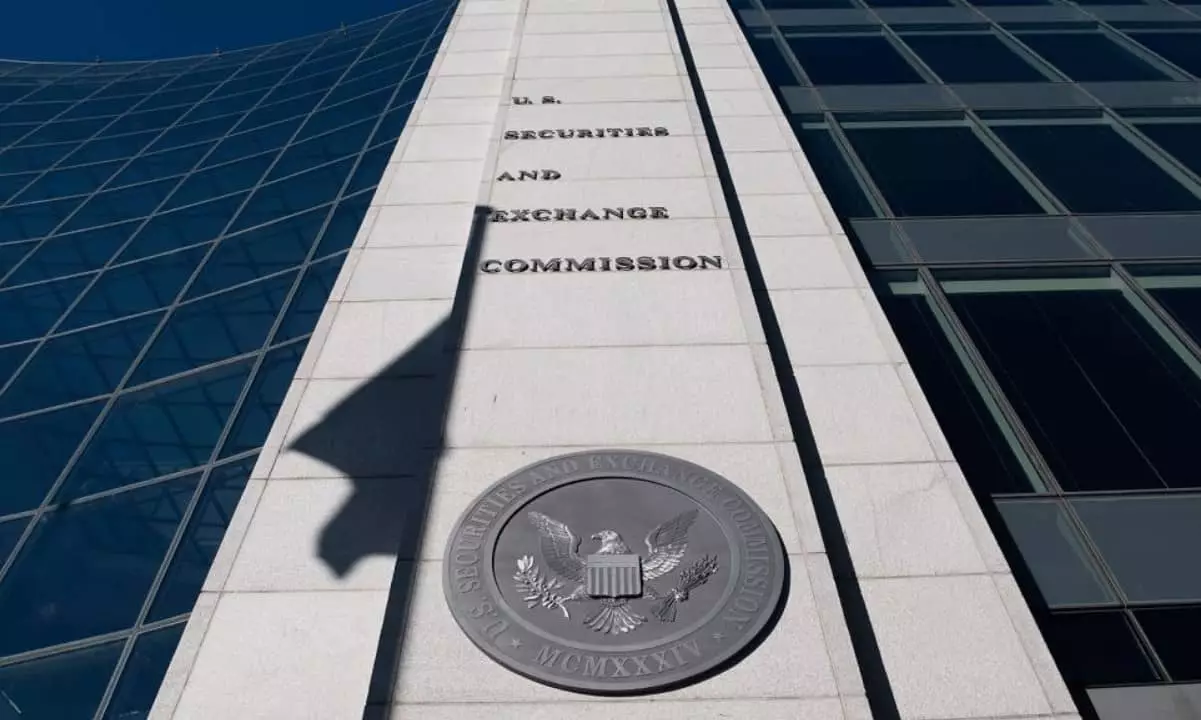The intersection of regulatory oversight and emerging financial technologies often reveals deep-seated tensions within governmental agencies. Recently, a group of Republican lawmakers, led by Representative Patrick McHenry and Senator Cynthia Lummis, has publicly challenged the Securities and Exchange Commission’s (SEC) handling of cryptocurrency custody regulations. At the center of this controversy is the SEC’s Staff Accounting Bulletin No. 121 (SAB 121), which the legislators are urging the commission to rescind. Their critique draws attention to significant procedural oversights, regulatory inequities, and potential risks that could arise from the current guidance.
The lawmakers argue that the SEC’s issuance of SAB 121 was not only premature but executed without adequate consultation with key industry stakeholders. This lack of engagement has, according to them, contributed to confusion among regulators and the financial community, while inadvertently increasing the vulnerability of consumers. Specifically, SAB 121 requires custodians of digital assets to recognize liabilities related to these assets and to account for them at their fair market value. Such a drastic departure from conventional accounting practices raises substantial questions about the financial stability of these custodians, placing consumers at risk if their custodians’ balance sheets do not reflect their actual economic positions accurately.
Moreover, the lawmakers insist that rescinding SAB 121 is a necessary and justified action within the SEC’s powers. They cite historical instances where similar staff accounting bulletins have been reconsidered, highlighting a precedent that supports their call for action. This insistence on accountability speaks to a growing concern that regulatory agencies may sometimes overstep their mandate, leading to unintended consequences for market participants.
A significant point raised in the letter to SEC Chair Gary Gensler is the assertion that SAB 121 qualifies as a “rule” under the parameters set out by the Congressional Review Act (CRA). This classification means the SEC should have undergone a formal notice and comment process, as prescribed by the Administrative Procedure Act (APA). By choosing to navigate outside this framework and instead framing the guidance as merely ‘staff advice,’ the SEC not only risks undermining its own regulatory integrity but also violates principles of transparency and public engagement that are vital for effective governance.
This situation raises critical questions regarding the nature of democratic governance in regulatory practice. The intent behind the CRA is to ensure that new rules receive adequate scrutiny from affected parties, ensuring that the changes benefit the market rather than distort it. By sidestepping this process, the SEC may be seen as prioritizing expediency over thorough regulatory scrutiny.
The criticism escalates further when examining instances of selective exemptions granted to particular financial institutions, notably BNY Mellon, which was the first bank allowed to bypass certain burdensome requirements of SAB 121. In doing so, the SEC has opened itself to accusations of favoritism within the crypto custodial space, with implications that some institutions are being granted better treatment than others. This selective enforcement of regulations not only undermines public trust but also raises issues about equal application under the law.
As noted by Eleanor Terrett, a Fox reporter covering the story, such inconsistencies create a troubling scenario where regulators effectively “pick winners and losers” within the burgeoning crypto market. This becomes particularly concerning when the regulatory environment is supposed to protect investors through clarity and uniformity. The lawmakers’ concerns emphasize the importance of regulatory fidelity, arguing that inconsistent treatment across entities erodes the foundations of investor protection mechanisms.
The ongoing debate surrounding SEC’s SAB 121 brings to the foreground broader questions about the role of regulatory bodies in times of rapid technological innovation. As cryptocurrencies and related financial services expand, the need for a coherent regulatory approach becomes paramount. Lawmakers’ challenges to the SEC highlight not only procedural failures but also ethical and operational responsibilities that agencies must prioritize. As the crypto landscape evolves, a transparent and fair regulatory framework is essential for building investor confidence and fostering sustainable market growth. The SEC’s ability to navigate this complex environment effectively will determine its relevance and credibility in an ever-changing financial world.

